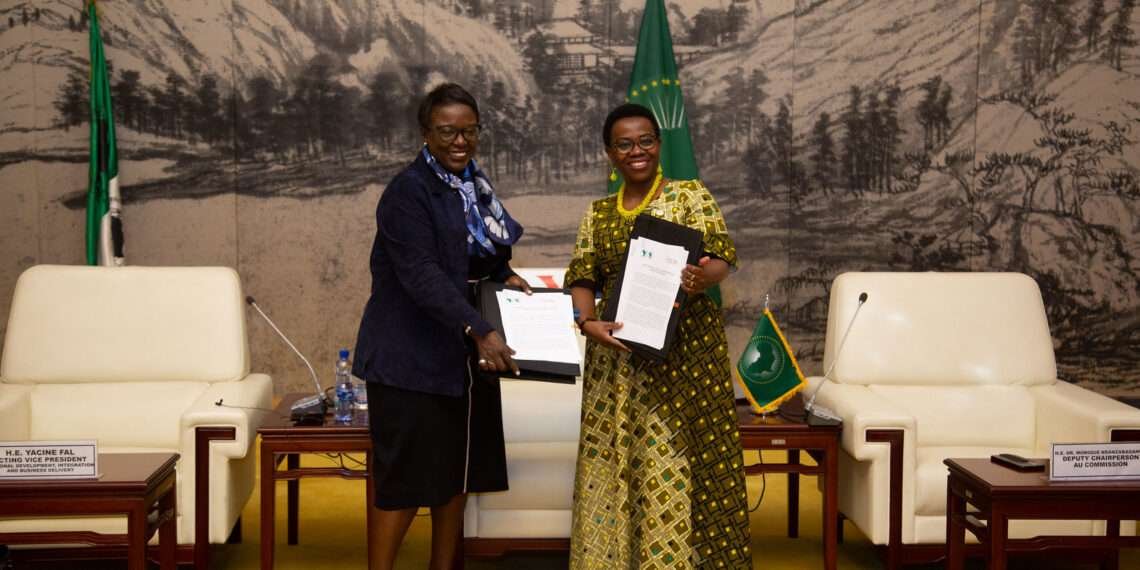The African Development Bank (AfDB) and the African Union (AU) have signed a protocol of agreement for the African Union institution capacity-building project to bolster the AU’s efforts to implement Agenda 2063.
Monique Nsanzabaganwa, Deputy Chairperson of the African Union Commission, and Yacine Fal, the African Development Bank Group’s Acting Vice President for Regional Development and, Integration and Business Delivery, signed the protocol of agreement in Addis Ababa, Ethiopia.
The project is expected to boost the AU’s exertions to implement Agenda 2063. Adopted in 2015, Agenda 2063 is the African Union’s vision for an integrated, prosperous, and peaceful Africa that is driven by its citizens and represents a dynamic force in the global arena.
The project cost of $11.48 million is supported by a grant from the Bank Group’s concessional financing window. The Board approved it in February 2022. The signing of the agreement protocol signals the start of the project’s implementation phase.
Deputy Chair Nsanzabaganwa referred to the process of consultation that led to the signing of the agreement. “As you know, this ceremony and the signing of the protocol of agreement represent the culmination of a series of interactions and consultations that have occurred between the African Union Commission, the African Development Bank, and several stakeholders starting last year,” she said.

Institutional Capacity Building Project to improve the capacity of AUC
The project would upgrade and automate several AU systems, including information management, procurement, financial management, human resources, and results in management. It will also address gaps in the AU’s continental early warning system, a critical instrument in preventing and managing conflicts and fragility across the continent.
In her remarks, the AfDB Acting Vice President Yacine Fal said, “Today is a milestone. Reaching it would not have been possible without the mutual trust and collaboration that our respective institutions have shown historically and throughout the process,” she added.
Among critical priorities the two institutions share are to drive regional integration and build the capacity of African institutions and businesses.
“Not only are Bank investments plugging regional infrastructure gaps, but they are also strengthening the institutional capabilities of the AU, regional economic communities, the African Continental Free Trade Agreement Secretariat, and other regional mechanisms,” Yacine Fal said.
Yacine Fal headed a Bank delegation to the signing ceremony. The delegation included Deputy Director-General for the East Africa Region Abdul Kamara and Acting Director of the Regional Integration Coordination Office Jean-Guy Afrika, among others.
The objective of the Institutional Capacity Building for the African Union Project is to improve the capacity of the African Union Commission (AUC) to drive Agenda 2063 and Agenda 2063’s flagship programs.
The African Union (AU) is a continental body comprised of the 55 countries that make up the African continent. Its mandate is to promote cooperation among Member Countries in economic, social, and political matters to improve the quality of life for the people of Africa.
READ ALSO: Successful Acquisition of Chirano to Push Asante’s Output to Around 400,000 oz























